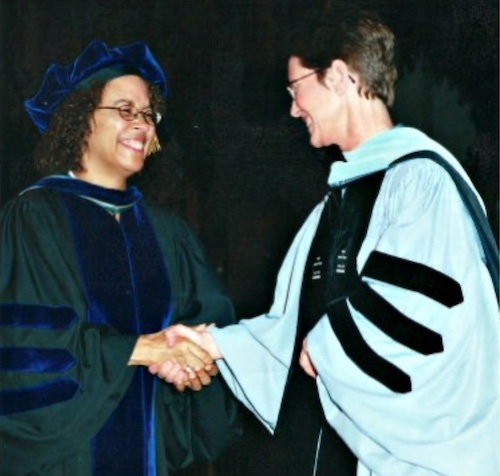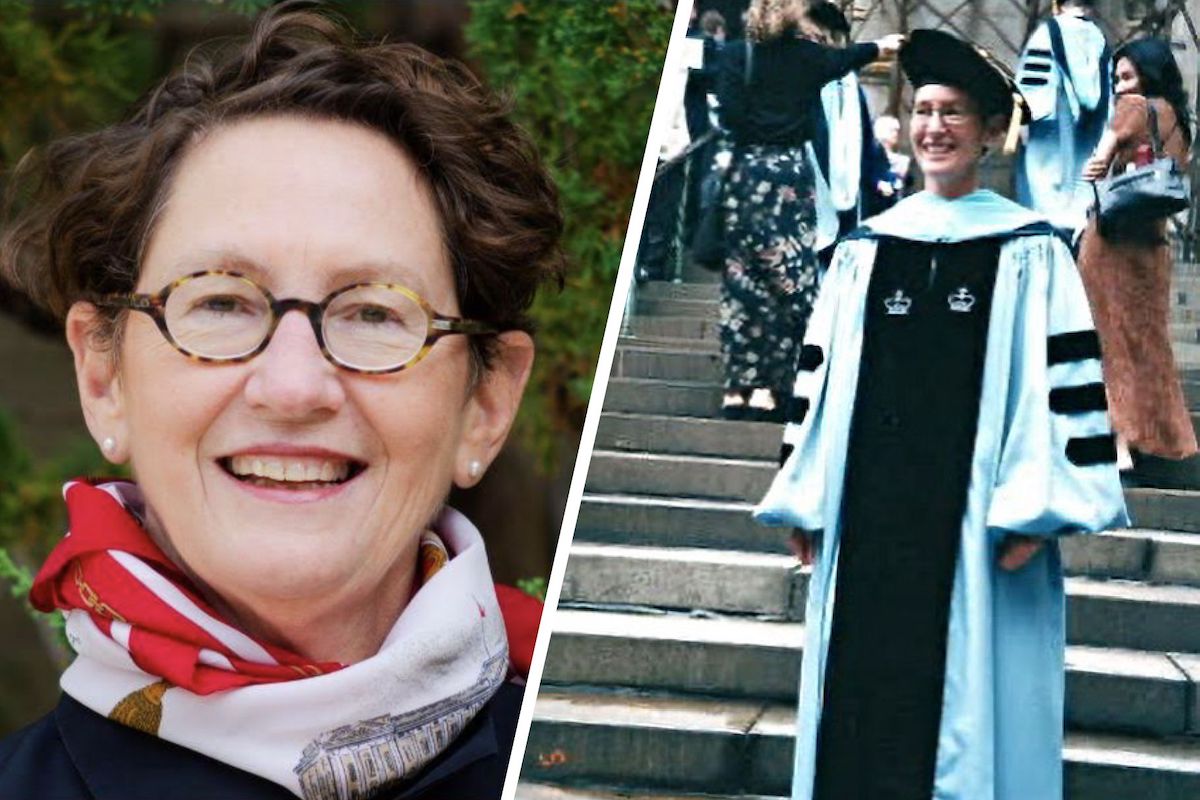When Cathy Benedict first came to Teachers College to earn her master's degree, she embraced a still uncommon approach to music education: leveraging a Curriculum & Teaching lens to forge new ground in how music teachers can best challenge and aid their students.
More than 30 years later, Benedict – with her own teachings and publications behind her – returns to TC and her former department as a lecturer. “I’m so honored to be back,” says Benedict, who joins the College from the University of Western Ontario. “These classes literally changed my trajectory as a human being.”
For Benedict, helping educators leverage music in their curriculum is critical to facilitating deeper conversations about history, identity and justice in the classroom through artistic means. Her latest book, Music and Social Justice: A Guide for Elementary Educators (Oxford University Press), explores just that.
“Children know racism, children know hunger, children know poverty…I entered the book thinking about what it means to have a socially just encounter, to meet and come to know the other, particularly with young children,” says Benedict, who realized, after co-editing the Oxford Handbook for Music Education, that no author there had addressed the elementary population.
Engaging students through artistic processes on issues like inequity and racism can hopefully help “to transform the unjust world in which we live,” explains Benedict. Examining everything from lullabies – (“so simple, but so filled with complexity”) – to the role of religion in crafting identity, Benedict pushes the limits of how music can facilitate culturally inclusive dialogue in the classroom. “We have to ask why certain questions are not being asked and teach our young children how to interrogate their world by learning to do the same.”

Cathy Benedict shakes hands with Darlyne Bailey, who served as Teachers College's Acting President at the time in 2004, at that year's doctoral hooding ceremony. (Photo courtesy of Benedict)
During her formative studies at Teachers College, Benedict’s scholarship was shaped by faculty like Karen Zumwalt, Professor Emerita of Education, and Herbert Ginsberg, the Jacob H. Schiff Foundations Emeritus Professor. Ginsberg’s emphasis on striving to understand how students think was particularly impactful.
“The phrase - ‘Tell me how you figured that out’ – completely changed my life. Every little domino in my life fell into place. If you don’t take the time to listen to how someone is figuring something out, you can’t know how or what they are processing. It led me to always consider: what does it mean to listen and respond to and with the other?”
For Benedict, returning to New York comes with treasures beyond TC — whether the opportunity to see theater regularly or her favorite museums like the Met with her husband, fellow TC faculty member Patrick Schmidt, Professor of Music & Music Education.
The journey back to the department that shaped her scholarship feels purposeful, leaving Benedict most excited to support students in the same way her former professors did so for her previously on TC Way. “I would not have done that without those courses. I wouldn’t have taken this path.”
